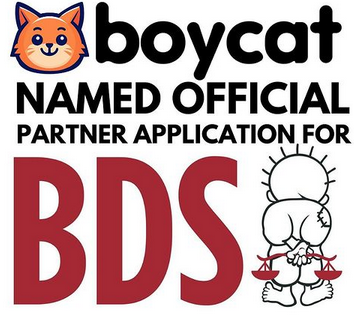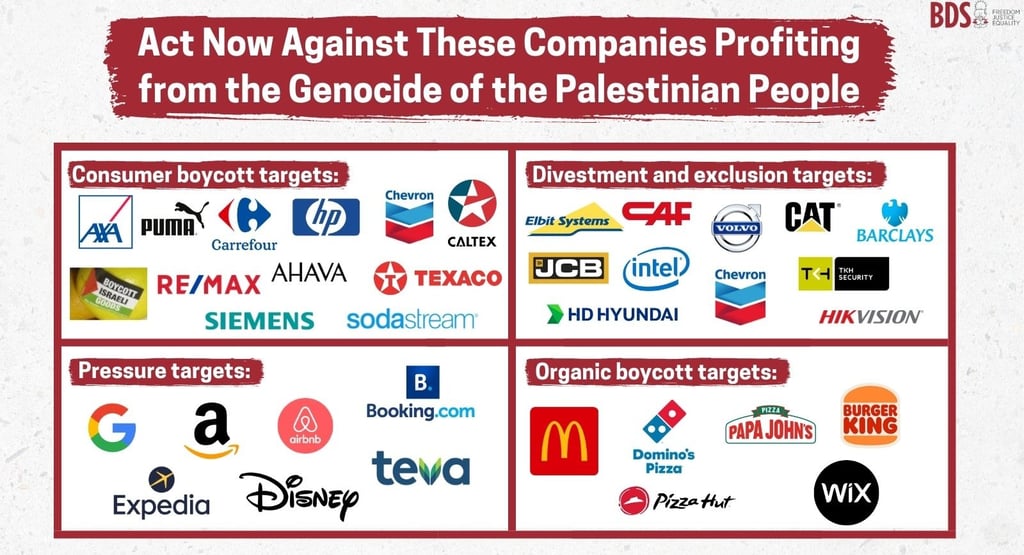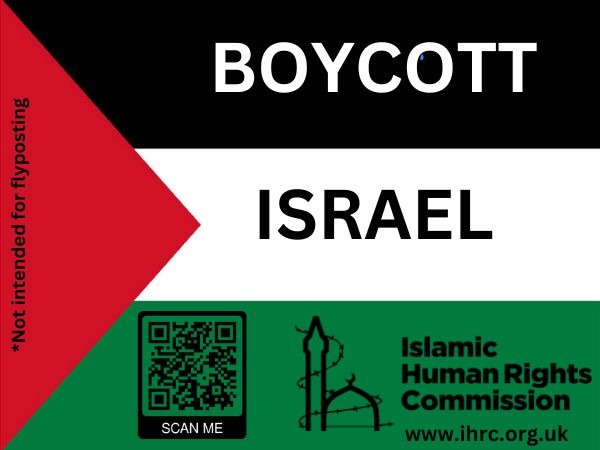Origins of the Boycott Movement
• The Israeli boycott movement has roots in the establishment of Israel in 1948, which led to a long-lasting conflict and displacement of Palestinians.
• The 1967 Six-Day War shaped the dynamics of the conflict, intensifying Palestinian grievances and intergovernmental tensions in the Middle East.
• The comparisons between the struggle for racial justice in the US and the Palestinian pursuit of rights ignited global solidarity among activists.
Boycat is now the official partner app of the BDS movement! 🖤😸
With our leveling system, you can choose how much you’re ready to participate —stress-free! 🌱🌿🌳
And here’s the game-changer:
BDS Priority Campaigns (Level 1) are LIVE-UPDATED in collaboration with BDS, right in the app, so you’ll always know the priority-impact targets to focus on. 🎯💸
Download or update Boycat in the link:
https://www.instagram.com/p/DCR2ryDPfEK/?utm_source=ig_web_copy_link
Boycat extension for your browser's online shopping
Ready to make a difference? One choice at a time, we’re moving towards a free 🍉 together!






Omar Barghouti عمر البرغوثي
founding committee member of PACBI
a co-founder of Boycott, divertisement, and sanctions (BDS) movement




Boycott, Divestment, Sanctions (BDS) Movement
• BDS movement was established in 2005, originating from a coalition of Palestinian civil society organizations.
• The movement focuses on three essential demands: the cessation of the Israeli occupation of Palestinian land, the attainment of equal rights for Palestinian citizens, and the right of return for Palestinian refugees displaced after Israel's formation in 1948.
• The BDS movement has made substantial progress on the international platform, impacting conversations about human rights and ethical concerns regarding Israeli policies.
• Despite criticism and resistance, the BDS movement has altered discussions about the Israeli-Palestinian conflict and sparked a fresh curiosity in exploring the ethical considerations of backing Israel.
Global Response and Controversies
• BDS movement aims to protest Israel's treatment of Palestinians and demand accountability for international law violations.
• Advocates argue it's a peaceful protest against Israel's treatment of Palestinians, but it's criticized for perpetuating discriminatory narratives against Jewish communities and undermining the legitimacy of the Israeli state.
• In response, several countries have enacted legislative measures to counter BDS efforts.
• In the US, laws prohibit government contracts with individuals or groups supporting boycotts against Israel.
• Similar measures have been observed in several European nations, creating a complex legal environment balancing anti-discrimination laws and free speech rights.
• The debate on BDS has revealed divisions within progressive circles, with some viewing it as a step towards social justice.
• Cultural and academic boycotts have been sparked, with withholding funding from artists or academics linked to Israeli institutions.
Current Status and Future Prospects
• The Boycott, Divestment, Sanctions (BDS) movement has gained visibility due to increased awareness of social justice matters.
• Social media and global connectivity have enhanced the narrative of the movement, with high-profile campaigns and protests.
• Collaborations with other social justice movements have broadened the boycott's reach, fostering solidarity among diverse groups.
• Pro-Israel groups continue to challenge the narrative pushed by BDS supporters, using legal, political, and social strategies.
• Legislation aiming to penalize supportive actions has surfaced in certain regions, raising concerns about activists' free speech.
• Differences in strategy within the movement can complicate unified advocacy approaches.
• Future strategies may involve heightened grassroots organizing, educational initiatives, and creative digital outreach.
CPSC Solidarity
Working for peace, equality, and justice together.
Reach out
Sign up to receive regular updates
All enquiries:
© 2024. All rights reserved. Privacy Statment
quick links

